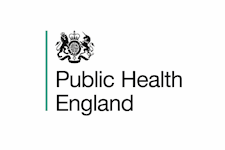Psychological First Aid: Supporting Children and Young People
FutureLearn
Summary
- TOTUM card available but not included in price What's this?
Overview
Get Psychological First Aid training to support children and young people’s mental health during emergencies and crisis situations
Course media
Description
Learn how to support children and young people using psychological first aid
On this 3-week course you will explore the techniques of psychological first aid (PFA), the globally recommended training for supporting people during emergencies. You’ll focus on children and young people’s mental health, and what you can do to help them cope and access the support they need during and after emergencies and crisis situations..
The course has been produced by Public Health England, working with a wide range of experts and organisations. It is based on international guidance from the World Health Organisation, United Nations and partners.
You don’t need any prior knowledge or experience as this introductory course will teach you the key principles of giving PFA to children and young people in crisis situations.
Identify how emergencies like COVID-19 affect children and young people’s mental health
Crises can severely impact mental health and it’s important that people have access to the support they need.
During this course, you’ll explore how emergencies affect mental health and what you can do to help the children, young people, and families you come into contact with.
You’ll learn how to recognise the common signs of distress across different age groups and be able to identify who might be at an increased risk.
PFA will also teach you helpful strategies to determine when people require additional support.
Deliver psychological first aid
By the end of the course, you’ll be able to deliver PFA techniques to support children and young people’s mental health after emergency and crisis situations.
You’ll have the tools to adapt PFA to the needs of particularly vulnerable people and be able to identify the ways to look after yourself and peers.
Who is this course for?
This course is aimed at frontline or essential workers and volunteers who come into contact with children and young people aged 0-25 years during emergency and crisis situations.
Those who may benefit from this course include parents/ caregivers, front line workers or volunteers; or for young adults to support their peers or family.
Requirements
You don’t need any previous experience or qualifications to deliver PFA. The following is what you will need to use PFA:
-
Be a good listener. An important part of PFA is identifying what help and support each person requires.
-
Understand the importance of accurate information during the pandemic and where to access it.
-
Have the ability to encourage active coping by, for instance, helping people make plans.
-
Encourage and help people to connect to others (in line with current regulations).
-
Be aware of people’s cultural preferences and needs.
Reviews
Currently there are no reviews for this course. Be the first to leave a review.
Legal information
This course is advertised on reed.co.uk by the Course Provider, whose terms and conditions apply. Purchases are made directly from the Course Provider, and as such, content and materials are supplied by the Course Provider directly. Reed is acting as agent and not reseller in relation to this course. Reed's only responsibility is to facilitate your payment for the course. It is your responsibility to review and agree to the Course Provider's terms and conditions and satisfy yourself as to the suitability of the course you intend to purchase. Reed will not have any responsibility for the content of the course and/or associated materials.


